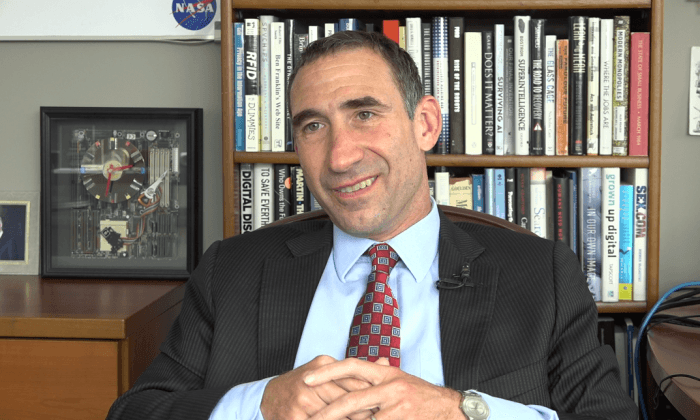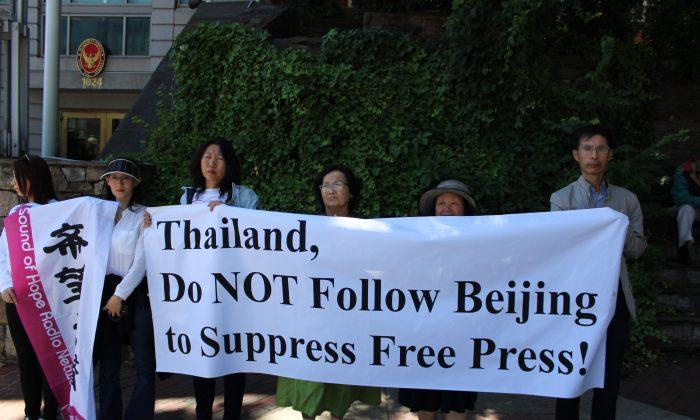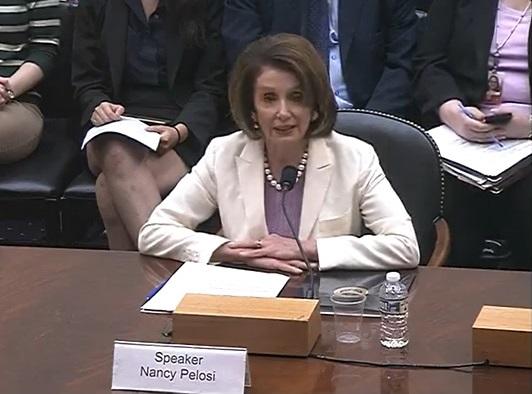An expert on global competitiveness sees the recently passed National Defense Authorization Act (NDAA) as bringing a more holistic approach to the defense of the United States.
“The National Defense Authorization Act is a recognition at all levels of the economy from the supply chains to the defense industrial base to military deployment that we need to have the most robust national security system in the world to protect our interests fully,” said Stephen Ezell, Vice President of the Information Technology and Innovation Foundation.
Ezell told New Tang Dynasty, a member of the Epoch Media Group, that his overall impression of the NDAA signed by President Trump on Aug. 13 is “the defense package clearly shows that the United States is intending to take a more active navy presence in the Pacific Ocean and a more active presence globally.
“But more broadly, it is a recognition that there is a need to respond through a holistic set of national security measures, not only defense and navy but also our core economic assets, so that these factors go hand in hand. Eventually the ability of a nation to fuel a strong economy gives us the ability to underpin a robust national security apparatus. These aspects are reflected in the NDAA.”
Protecting US Core Technologies
One of the key components of the NDAA is FIRRMA (Foreign Investment Risk Review Modernization Act of 2018). The Bill has been tasked with ensuring foreign investments in the United States don’t harm its national security.In recent years, it was reported Chinese enterprises have been trying to take the ownership of American technology companies by making venture capital investments. These actions put the Trump administration and Congress on alert.
Ezell said it is important to contextualize the nature of Chinese economic strategy and global competition to understand the intent of the NDAA.
“China is focused on the strategy of technology upgrade, moving up the value chain to higher value in forms of production and a wide range of production industries such as advanced manufacturing, biosciences, information and communication technology. These goals are reflected in the China Made 2025 Strategy which covers twelve key sectors that China wants to be globally competitive.”
“The way China has tried to pursue this technology upgrade is through a number of mechanisms. Some are legitimate, and some are unfair trade practices.”
“When China wants to compete by investing more in its science and research development, graduating more engineers to make China more globally competitively, that’s fine,” Ezell said. “However, when China deploys other practices such as plagiarizing intellectual property, placing conditions on foreign enterprises competing in China such as requiring them to transfer technology or imposing conditional market access, these types of practices are not consonant with China’s commitment to the WTO.” And these are the practices U.S. policies are trying to tackle.”
China has attempted to pursue the path to its technology upgrade by making investment in foreign enterprises either in order to wholesale acquire them or take positions on boards, or to be in a position where they can have access to non-public technical information. These can be source code or core technologies. But these simply represent the core intellectual property and knowledge.”
“When we see these across the board, there has been more attention placed to Chinese attempted purchases of large enterprises such as KUKA from Germany or Micron (Technology) from the U.S.” Ezell also suggested that recent Chinese government-funded investments, often through venture capital firms, are looking to invest or even acquire technology startups in Silicon Valley.
Different Approach to China
In terms of different approaches to China taken by the Trump administration and the previous administration, Ezell noted “There is a recognition from the Trump administration that the tactics and strategies pursued by previous administrations were failing to prevail on China to adhere to its commitment made to the international organizations like WTO.“So the Trump administration is taking a firmer stance through mechanisms such as bringing cases before the WTO, and levying tariffs, particularly on imports from Chinese advanced technology industries. So we are going to take a firmer line on China and insist that it is time that the country adheres to both the spirit and the letter of the commitments it made in organizations like WTO.”
Finally, Ezell believes that the Trump administration will be more successful in its policies towards China.



